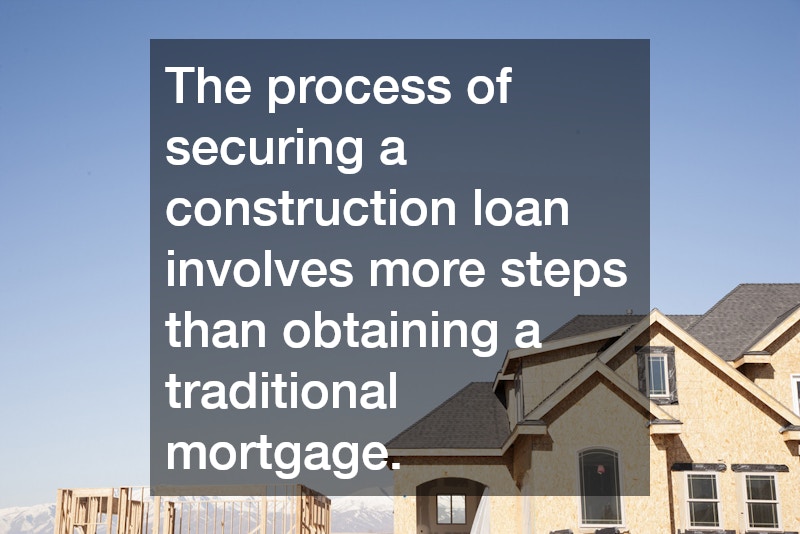Building Your Dream Home: What to Know About Construction Loans in Wisconsin
In this article, we will explore the essential information you need to know about securing a construction loan in Wisconsin for building your dream home.
Understanding the Basics of Construction Loans
What is a Construction Loan?
A construction loan is a short-term loan used to finance the building of a home or other real estate project. Unlike traditional mortgages, which provide funds in a lump sum, construction loans are disbursed incrementally as the project progresses.
This type of loan covers costs such as land purchase, labor, materials, and permits. Construction loans carry higher interest rates than traditional mortgages due to their increased risk and short-term nature.
Borrowers typically transition from a construction loan to a permanent mortgage once the home is completed and appraised. This conversion involves securing a separate loan that replaces the initial construction financing.
How Do Construction Loans Work?
The process of securing a construction loan involves more steps than obtaining a traditional mortgage. Once approved, funds are released in stages according to a predetermined disbursement schedule linked to project milestones.
Interest is typically charged only on the amount disbursed rather than the total loan amount, helping manage costs during the construction phase. Lenders may require inspections at each phase to ensure that funds are appropriately allocated.
Loan terms can vary significantly based on the lender and project specifics, so it’s crucial to understand all aspects of the agreement. Working with experienced financial advisors and builders can facilitate the process.
Eligibility and Requirements for Construction Loans in Wisconsin
Key Financial Requirements
Lenders in Wisconsin generally assess the applicant’s creditworthiness, often requiring a minimum credit score. A solid credit history demonstrates reliability and financial responsibility, vital for securing favorable loan terms.
Down payments for construction loans typically range from 20% to 25% of the total project cost. This requirement ensures the borrower has significant equity in the project, reducing the lender’s risk.
A cost breakdown or budget estimate is often necessary, as it allows lenders to evaluate the financial feasibility of the project. Accurate financial planning can significantly influence the likelihood of loan approval.
Documentation Needed
Securing a construction loan in Wisconsin requires detailed documentation that outlines project specifics. Applicants must provide comprehensive construction plans that have been approved by local authorities.
Agreements with licensed contractors, including cost estimates and timelines, are essential documentation. These contracts must clearly delineate responsibilities and expected outcomes for both parties.
Additional documentation, like proof of income and tax records, supports the applicant’s financial stability and ability to repay the loan. Gathering all necessary paperwork beforehand can streamline the approval process.
Choosing the Right Lender for Your Construction Loan
Types of Lenders Available
In Wisconsin, borrowers can choose from a variety of lenders, including banks, credit unions, and specialized mortgage companies. Each lender type offers different advantages, such as lower fees or flexible terms.
Banks may offer comprehensive services and established reputations, making them a reliable choice. Conversely, credit unions often provide personalized service and competitive rates to their members.
Specialized mortgage companies might focus solely on construction loans, offering expertise and tailored options. It’s important for borrowers to assess their priorities and needs before selecting a lender.
Comparing Loan Offers
When comparing loan offers, focus on the interest rates, which can significantly impact overall costs. It’s also wise to review terms and conditions, including repayment schedules and fees.
Loan terms and interest rates can vary widely, reflecting the competitive nature of the lending market. Carefully read through each offer to identify hidden costs or unfavorable terms that could affect your budget.
Negotiating with lenders can potentially secure better terms, especially if you present yourself as a low-risk borrower. Seeking advice from financial advisors can provide insights into the viability of different offers.
Conclusion
Securing a construction loan in Wisconsin is a crucial step toward building your dream home. By understanding the basics, meeting eligibility requirements, and choosing the right lender, you can successfully navigate the construction loan process.

